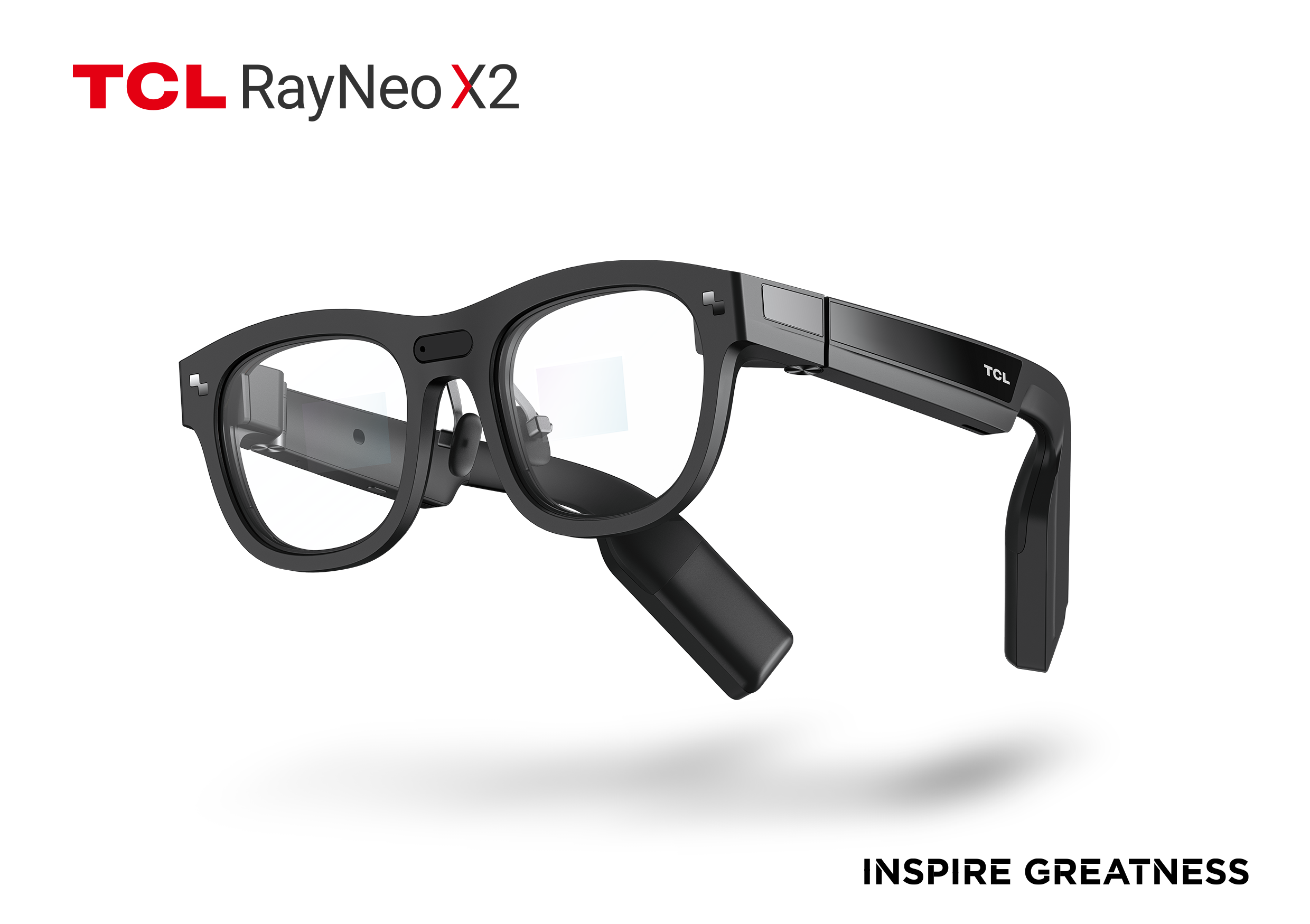TCL is known mainly for its TVs, and on occasion, it'll also deliver some budget-minded smartphones as well. But the company has also been dabbling in another product segment for some years, focusing on digital eyewear, giving users the ability to display massive 100-inch screens in front of their faces by just putting on a pair of glasses.
While TCL used to arrive to CES with just prototypes, it eventually arrive at CES with consumer products, with one of its earliest efforts being the NXTWEAR G. It followed up the next year with the NXTWEAR AIR, and most recently, we got some in-depth time with an iterative update known as the NXTWEAR S. Although these glasses were good at what they do, they weren't really stand-alone products, instead, more of an extension of an existing device, expanding that device's display to an expansive size.
At CES 2023, TCL is looking to expand its horizons, announcing its first AR glasses, known as the RayNeo X2. The glasses are powered by a Qualcomm Snapdragon XR2 processor with 6GB RAM and 128GB of internal storage. As you can see from the image above, the RayNeo X2 looks like a semi-normal pair of glasses, but features full-color micro-LED displays in each lens, offering a brightness of up to 1,000 nits. The glasses also pack a camera, coming in at 16MP that are capable of recording 1080p video and also taking pictures.
Of course, you'll get dual speakers, and built-in sensors like a gyroscope, accelerometer, compass, and pressure sensor. Now, you're probably wondering what can the RayNeo X2 do, and for the part, TCL shares that it can accomplish tasks like accessing a digital assistant, project on-screen navigation directions, and also processing translations on the fly, and more. While this all sounds great, one thing to note is that TCL isn't actually delivering the product with this announcement.
Furthermore, it states that this will first go out to developers in the early part of 2023. This is being done in order to bolster the experience. While it is unknown when it will become available commercially, the company does claim that it will go on sale sometime much later in 2023.

